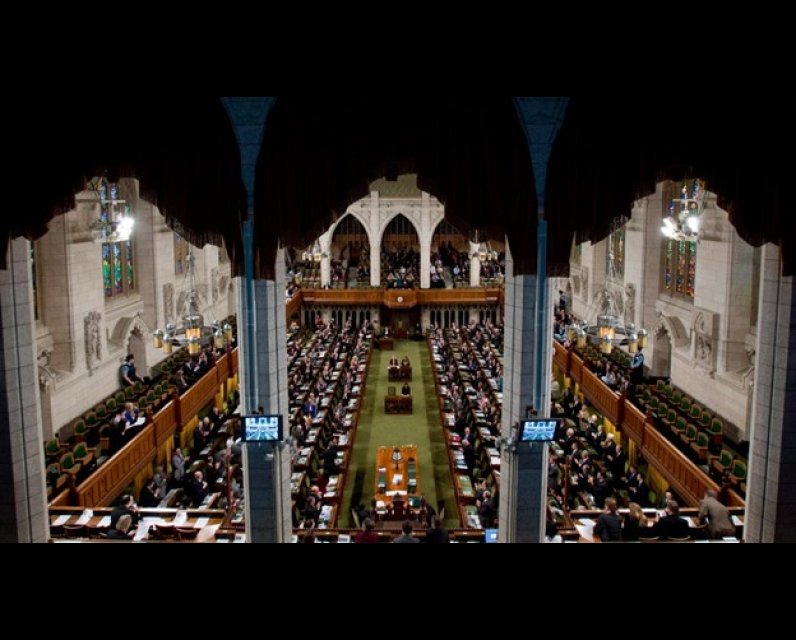Unpublished Opinions
Stefan Klietsch grew up in the Ottawa Valley outside the town of Renfrew. He later studied Political Science at the University of Ottawa, with a Minor in Religious Studies. He ran as a candidate for Member of Parliament for Renfrew-Nipissing-Pembroke three times from 2015 to 2021. He recently graduated with a Master of Arts in Political Science at the University of Carleton.
Canadian Members of Parliament work hard, but they should be paid less

Canada’s Members of Parliament are paid for doing too much of the wrong kind of work
Scholars of political science have distinguished between two not-entirely-distinct categories of political representation: substantive representation, the closeness of legislators in representing the policy interests of their constituents, and descriptive representation, the closeness of legislators in matching the demographics and experiences of their constituents.
I bring up this jargon in response to the April 1st raise of Canadian MPs’ salaries to $203,100 per year, reportedly the second-highest pay for legislators in the world. On top of that pay, MPs receive free food and expense reimbursements, as well as a special pension granted after 6 years in the House of Commons. Many MPs do come from middle-class backgrounds, but the end status for all elected MPs is the same: upper-class elite status. This does not look like “descriptive” representation of most Canadian citizens, to put it mildly.
Contrary to popular perception, being an MP involves a hard-working lifestyle, and the memes about Pierre Poilievre having never worked a “real” job in his life are off-the-mark. While MPs may be off duty from work on Parliament Hill for much of the year, in practice MPs also take on many other roles that are demanding upon their time. These include attendance at an endless variety of ribbon-cutting ceremonial events, involvement in party functions, and an infinite variety of potential meetings with any of their tens of thousands of riding constituents. Some MPs fly between their ridings and Ottawa on a weekly basis, although the post-pandemic shift of House of Commons voting towards hybrid participation would have reduced the amount of MP travel. There is no formal job description for the role of an MP, so basically MPs do whatever their constituents and the parties can and will pressure them to do.
If anything, the culture of Canadian politics encourages MPs to work too hard, but towards all the wrong priorities. All the most consequential work of MPs involves legislative and executive policies; ideally these would be handled by intellectual minds and strong listeners that can carefully mediate between competing interests. In reality, our parties and electoral institutions create MPs who are first and foremost campaign paratroopers, persons who were elected because of a high-energy and extraverted drive to knock on doors and get in peoples’ faces – all without saying anything bold enough to upset any of the party insiders who gatekeep access to nomination contests. Candidates’ debates that would show the policy depth of local candidates are virtually a non-factor in the election of MPs.
With all that in mind, what would be a fair salary for our MPs? In the corporate world employees are often paid a sum barely higher than what the market can bear without making access to labour overly scarce. Given the thousands of failed MP candidates with every federal election, there is obviously a willing supply of would-be MPs willing to work at lower than the current pay rate. On the other hand, there is an argument that has been made that elected officials should be paid highly to ensure that they have higher stakes in avoiding corruption. This argument seems dubious given the many infamous political figures whose high salaries were never a seeming obstacle to their personal corruption.
Arguably the current state of Canadian politics demonstrates that we need MPs both to be paid less and to work less. That is right, it is time to elect more representatives from the Chill Pill Party. Let us elect more MPs who make a virtue of not showing up at your favourite community festival, who will not make themselves available for one-on-one meetings with you, and who will not let themselves be involved in your issues with the civil service. Let us have more MPs who make the time to have policy debates and to hear policy advice from ordinary citizens, but who have minimal time to do much of anything else in their own riding. Instead of paying MPs more money, budget more money for MPs to hire more staff to do the constituency work. Or better yet, slash MPs’ pay and increase the number of MPs, so that MPs are not so few and fringe relative to wider society.
You as a voter may be right to expect a certain quality of service from MPs for your tax dollars invested in their livelihoods, and you may feel that quality to be currently wanting. But let us start any conversation of the worth of MPs with the understanding that insofar as they have made the House of Commons an unserious place, they did so on a misunderstanding of where the hard work should begin and where it should end.



Comments
Be the first to comment